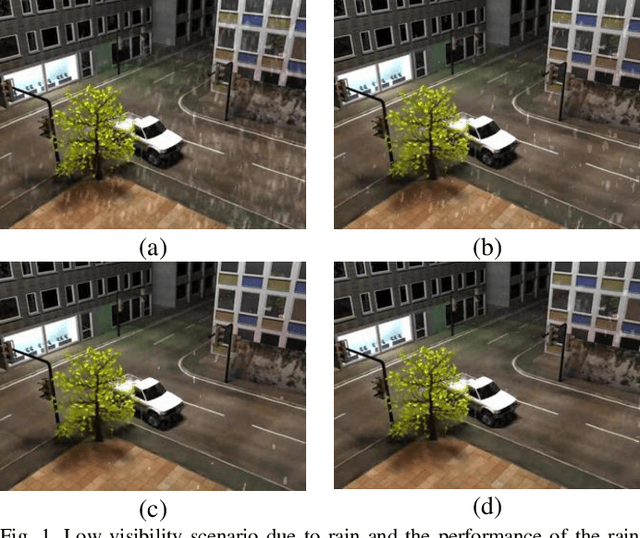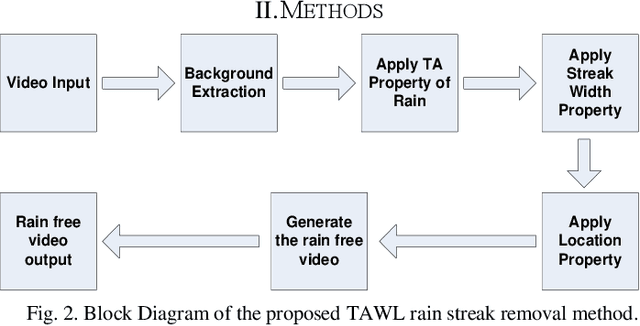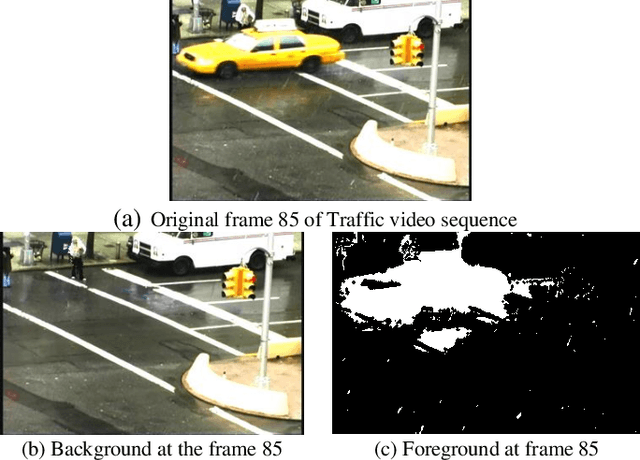Rain Streak Removal in a Video to Improve Visibility by TAWL Algorithm
Paper and Code
Jul 10, 2020



In computer vision applications, the visibility of the video content is crucial to perform analysis for better accuracy. The visibility can be affected by several atmospheric interferences in challenging weather-one of them is the appearance of rain streak. In recent time, rain streak removal achieves lots of interest to the researchers as it has some exciting applications such as autonomous car, intelligent traffic monitoring system, multimedia, etc. In this paper, we propose a novel and simple method by combining three novel extracted features focusing on temporal appearance, wide shape and relative location of the rain streak and we called it TAWL (Temporal Appearance, Width, and Location) method. The proposed TAWL method adaptively uses features from different resolutions and frame rates. Moreover, it progressively processes features from the up-coming frames so that it can remove rain in the real-time. The experiments have been conducted using video sequences with both real rains and synthetic rains to compare the performance of the proposed method against the relevant state-of-the-art methods. The experimental results demonstrate that the proposed method outperforms the state-of-the-art methods by removing more rain streaks while keeping other moving regions.
 Add to Chrome
Add to Chrome Add to Firefox
Add to Firefox Add to Edge
Add to Edge